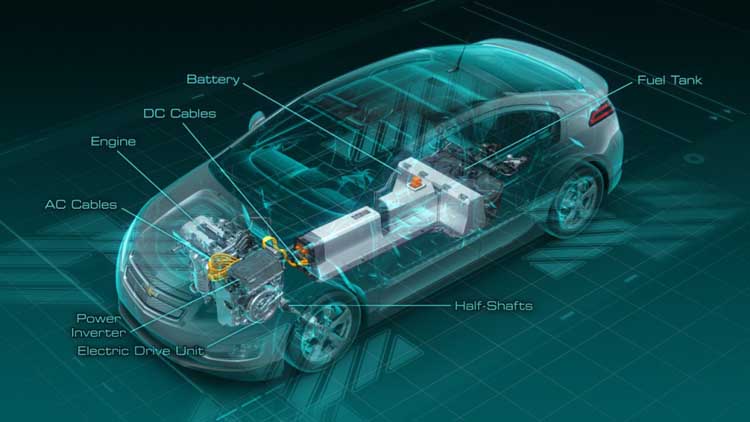
When it comes to hybrids and electric vehicles, one of the biggest drawbacks concerns the battery pack. Besides being bulky, batteries aren’t particularly efficient at generating energy, which under braking means it often takes considerable time for the battery to be re-charged and in the case of pure EVs severely limits operating range.
By contrast, supercapacitors, are able to scavenge and generate energy much faster, while being able to endure multiple charge cycles with little or no degradation (unlike batteries). However, in most cases (dictated by the need to provide a suitable casing to house the liquid electrolyte necessary for generating a chemical reaction), supercapacitors were also big and heavy, making them largely unsuitable for automotive applications.
However, a team of scientists from the University of Minnesota has developed a new solid state supercapacitor that performs similar to those currently available, only in a much smaller package.
Rajesh Rajamani, a mechanical engineering professor at the University of Minnesota, along with colleague Shan Hu and fellow professor Xun Yu from the University of North Texas, were able to create this new supercapacitor using a polymer based electrolyte and nanotube coated cotton paper for electrodes.
The result is a device that is both compact and flexible, making it ideally suited for mounting just about anywhere on a vehicle. However, despite the advantages in energy generation a supercapacitor provides over batteries typically found in modern hybrid and electric vehicles, some issues remain.
The biggest is high resistance, caused by the cotton paper electrodes, which results in a relatively low power density and makes recharging painfully slow (not unlike many battery systems). Rajamani and his team say they are working on improvements, namely coating the paper with a higher density nanotube solution and if they succeed, we might have a truly viable alternative to bulky battery packs (at present a number of groups are already working on programs that team supercapacitors with battery systems in hybrids and EVs to help boost performance and fuel economy).
If that proves to be the case, then future hybrids and EVs will be able to deliver levels of performance far superior to those available today, since they’d be able to generate the same if not more energy while having far less weight to lug around. Not only that, but they’d be also far more practical, since there wouldn’t be a need to replace the battery pack every few years.